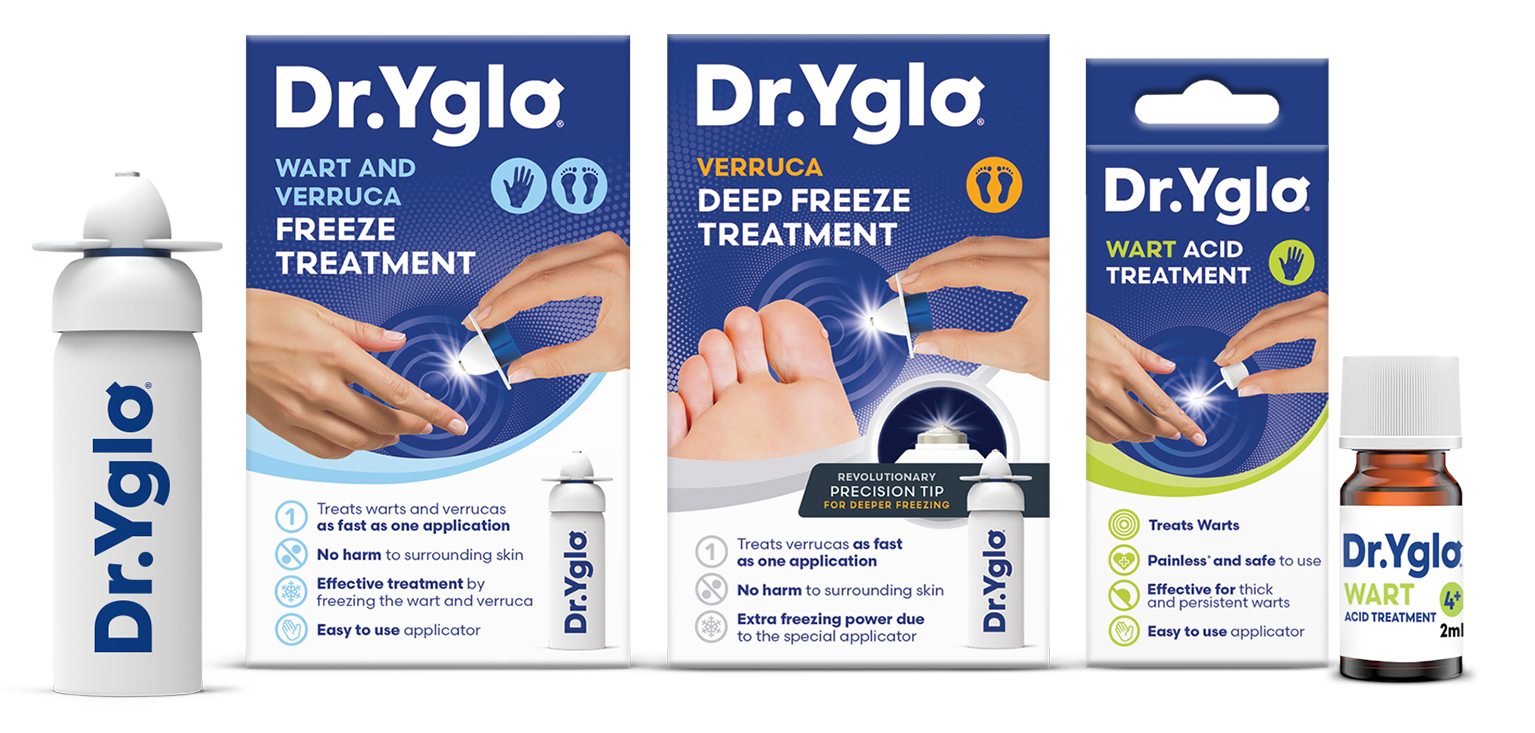Everything you need
to know about warts
and verrucas
Learn everything you need to know about warts and verrucas in this blog. Explore their causes, treatment options and receive advice on effectively dealing with both warts and verrucas.

Verrucas Unveiled: Causes, Treatment, and Tips for Prevention
Verrucas, also known as plantar warts, are a common condition that can affect anyone, from children to adults. These small, often painful growths on the soles of the feet are caused by the human papillomavirus (HPV). In this article we will examine the factors behind verrucas, explore available treatment options, and provide practical tips for preventing and managing these pesky foot growths.
Understanding Verrucas
Verrucas result from specific strains of the human papillomavirus (HPV) that flourish in environments characterized by warmth and moisture. They commonly appear on the weight-bearing areas of the foot, such as the soles and heels. Unlike warts on other parts of the body, verrucas can be flattened by the pressure exerted during walking, causing them to grow inward and become surrounded by a tough, thickened layer of skin.
Causes of Verrucas
- Plantar warts are caused by the human papillomavirus (HPV): the primary cause of verrucas is the human papillomavirus, which can enter the skin through tiny cuts, abrasions, or weakened skin.
- Direct contact with contaminated surfaces: walking barefoot in damp, communal areas like swimming pools, locker rooms, or gym showers increases the risk of coming into contact with the virus.
- Weakened immune system: people with diabetes or a weakened immune system may be more susceptible to developing verrucas.
- Age and gender: these aspects also play a role, as verrucas are typically more prevalent in children and young adults, with a slightly higher incidence among females than males.
Treatment Options
Although verrucas may spontaneously resolve without any intervention, this process, however, may extend over several months or even years. If verrucas persist, cause discomfort, or show signs of spreading, it is recommended to consider treatment for their removal.
There are a number of treatment options available for verrucas:
Over-the-Counter (OTC) Medications: Topical treatments containing salicylic acid can be applied to the verruca to gradually break down the thickened skin and eliminate the wart.
Acid Treatment
The application of acid treatments, such as salicylic acid, to a verruca aims to break down and eliminate the thickened skin that forms the lesion. Verrucas are virall formations composed of keratin protein, and as a keratolytic agent, salicylic acid is able to break down the protein the makes up the verruca. The acid softens the skin, inducing mild inflammation, which, in turn, stimulates the body’s immune response to combat the virus.
Cryotherapy
This involves freezing of warts by applying liquid nitrogen, leading to the formation of a blister around the wart. This blister can typically be removed after about a week, and multiple sessions may be required for optimal results.
Prescription Medications
In some cases, a healthcare professional may prescribe stronger medications or topical treatments such as formaldehyde.
Minor surgical procedures
If persistent verrucas fail to respond to other methods, surgical removal, such as laser treatment, may become necessary.
While verrucas are a common foot ailment, effective management is possible with proper care. By understanding the causes, exploring available treatments, and adopting preventive measures, you can proactively take charge of your foot health and minimize the impact of verrucas on your daily life.
Where to buy Dr. Yglo?
Please visit the website of your country to check for product availability.

What solution would you like?
Whether you are looking for an acid or freezing method, Dr. Yglo can help you out with
effective wart treatments. Find out which method is right for you!
